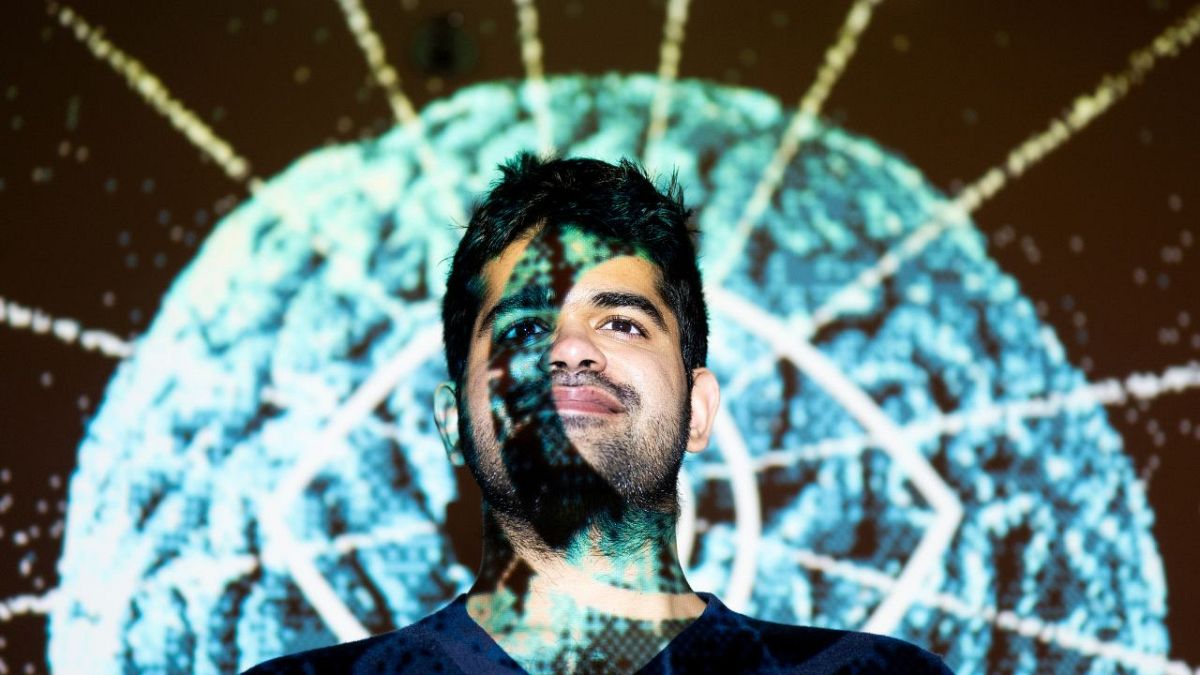Tech
What is Perplexity AI and why is it stirring controversy?

The Jeff Bezos- supported AI start-up is hoping to use LLMs to challenge Google in the search engine market but it’s ruffling feathers.
Artificial intelligence (AI) start-ups are making waves, with Perplexity AI becoming the latest to hit the headlines.
Perplexity is an AI-powered search engine and chatbot that assembles information from web pages that it deems trustworthy and then provides a summary with its own tool.
It is one of the start-ups that is trying to open up the Google-dominated search engine market. The company says its mission is to “democratise access to knowledge” by making it easier for anyone to learn and explore new topics.
The company currently receives about 15 million queries a day, according to the Wall Street Journal.
Euronews Next looks at how to use it and why it’s the sudden object of interest and controversy.
How does it work?
Perplexity uses multiple large language models (LLMs), such as OpenAI and Meta’s Llama, to generate summaries from your search.
But what makes it different from the likes of Google?
Traditional search engines use pre-indexed data. But Perplexity does real-time searches, which the company said makes it effective for topics that evolve quickly, such as news.
Rather than providing a list of links like other search engines, Perplexity says it gives you answers in “clear, everyday language”.
It also shows links to the sources that have been used in the answers so that you know where the information is coming from.
How did it start?
Perplexity was founded in 2022 by Andy Konwinski, Aravind Srinivas, Denis Yarats, and Johnny Ho, who met while working at Google AI.
The company is based in the San Francisco Bay Area in the US and is funded by several venture capital firms. It is also backed by Amazon founder and former CEO Jeff Bezos.
Why the sudden interest?
The company is in fundraising talks and hopes to raise around $500 million (€463 million) at an $8 billion (€7.4 billion) valuation, according to a report in The Wall Street Journal this week. This would double the company’s valuation.
But it’s not all been good news for Perplexity. Some news publishers, including The New York Times, Forbes, and Wired, and more recently media tycoon Rupert Murdoch’s Dow Jones and New York Post, have accused the company of plagiarism and web scraping, with some of those complaints resulting in lawsuits.
One of those lawsuits from Murdoch’s media empire alleged that Perplexity concocted a scheme to train its models for free, diverting traffic away from a publishers’ website, which can be critical to their revenue.
“This suit is brought by news publishers who seek redress for Perplexity’s brazen scheme to compete for readers while simultaneously freeriding on the valuable content the publishers produce,” reads the lawsuit filed in the Southern District of New York.
This lawsuit is part of a wider copyright dispute between tech companies and publishers over using new articles and other content without permission to operate their systems.
The news companies argue Perplexity ingests its content in an internal database, which uses a technique called retrieval-augmented generation (Rag) to generate responses to users’ questions.
Perplexity users can also “Skip the Links” to the original publishers.
The plaintiffs also argue that Perplexity formulates its responses in a way that can reproduce the content word for word.
In July, Perplexity announced a revenue-sharing model for publishers.
“When Perplexity earns revenue from an interaction where a publisher’s content is referenced, that publisher will also earn a share,” Perplexity wrote in a blog post, adding that the company will offer publishers application programming interface (API) credits.
Perplexity AI is not the only company to get into trouble with media companies.
There are two main issues when it comes to copyright and AI. The first is whether AI companies can legally use copyrighted materials to train their models. The second issue is who owns the rights to AI-generated content since traditional copyright laws assume human authorship.







.jpg)

